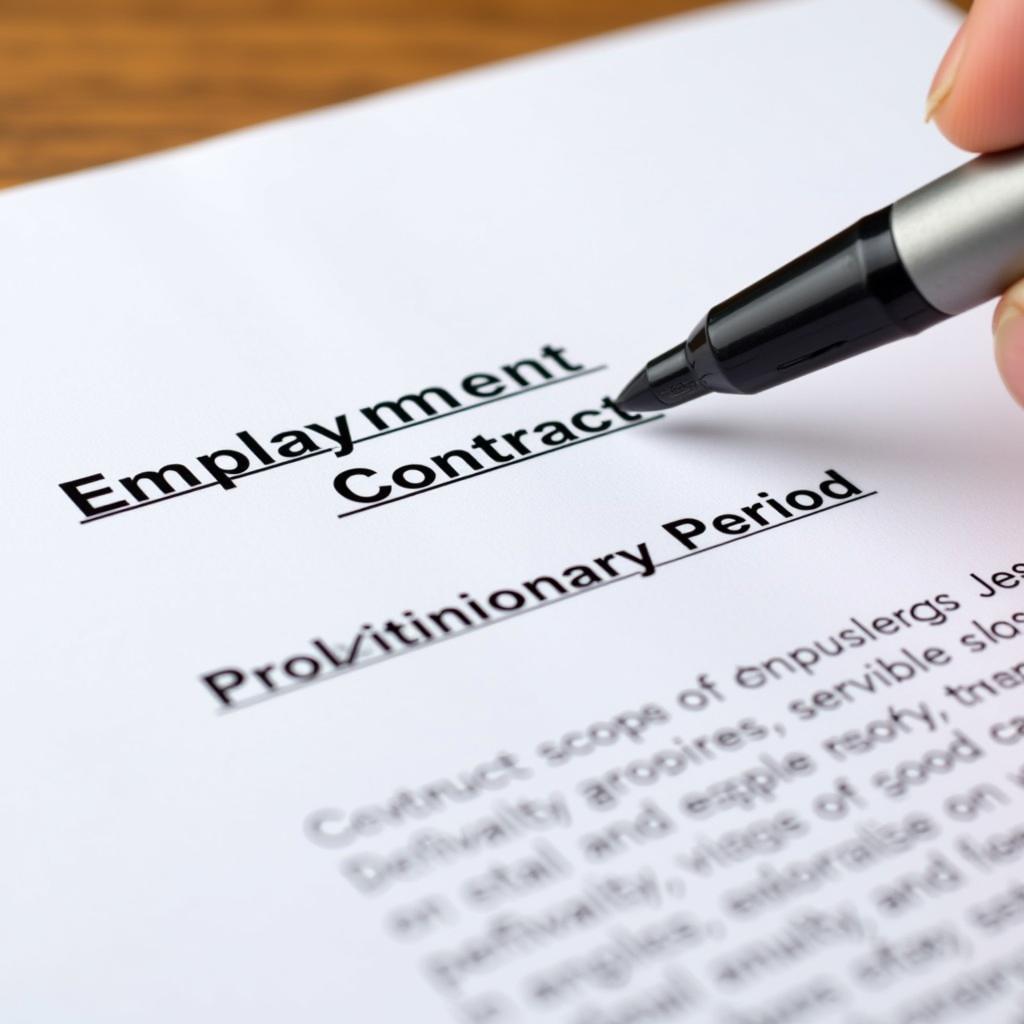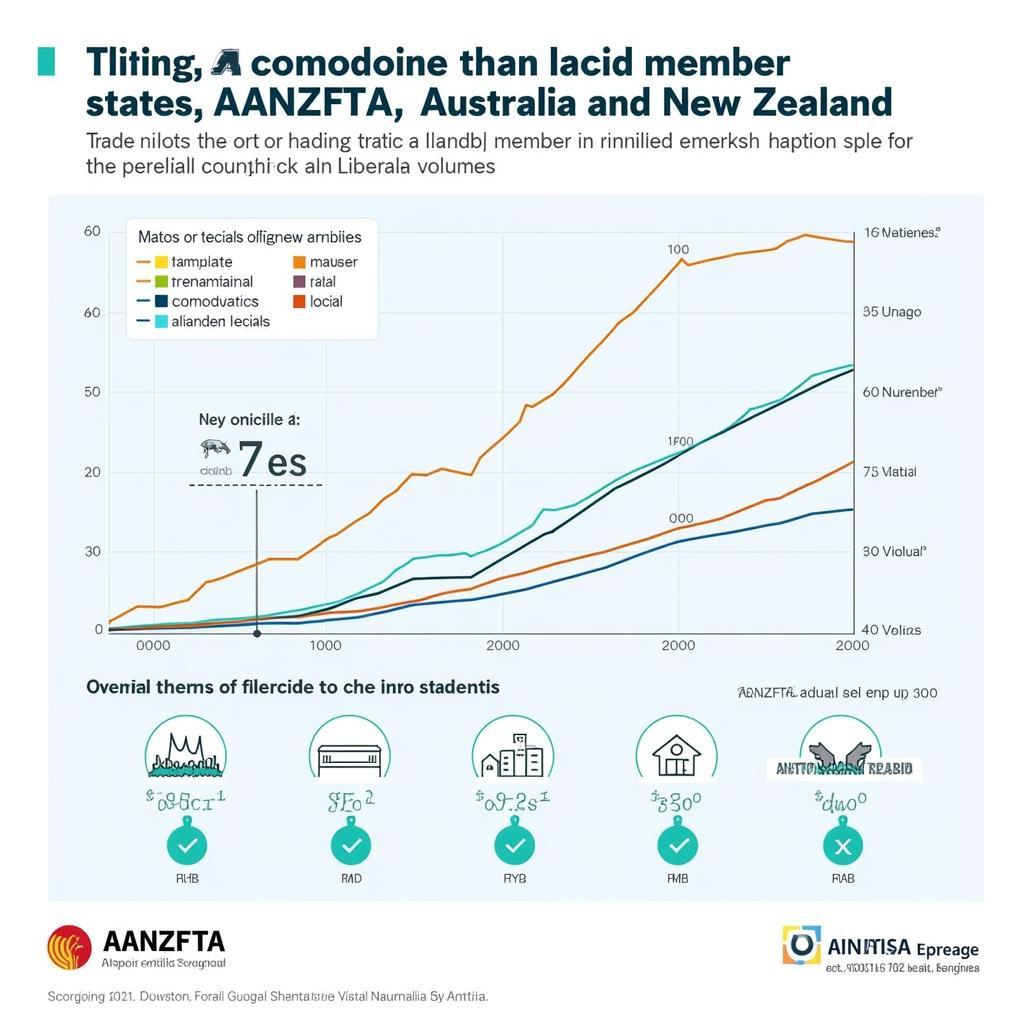Navigating the intricacies of employment policies in a new region can be challenging, especially for fresh graduates. This is particularly true for ASEAN probation policies, which can vary significantly from other parts of the world. This article delves into the intricacies of the ASEAN probation policy for graduate students, providing clarity and guidance for those embarking on their professional journeys within the vibrant ASEAN region.
What is Probation and Why Does It Matter?
Probation is a specified period at the beginning of employment during which a new employee’s suitability for a role is assessed. It’s a two-way street, allowing both the employer and employee to determine if the position and the company are the right fit. For graduate students transitioning into the professional world, understanding the nuances of the probation policy is crucial for a smooth and successful start to their careers.
Common Probationary Periods for Graduate Students in ASEAN
While probationary periods can vary depending on the company and industry, a common duration for graduate students in ASEAN countries is between three to six months.
- Three months: This is typical for entry-level roles or positions requiring a shorter onboarding process.
- Six months: Roles demanding specialized skills, technical knowledge, or higher levels of responsibility may have a longer probationary period.
 Reviewing the employment contract with a focus on the probationary period clause
Reviewing the employment contract with a focus on the probationary period clause
Key Aspects of ASEAN Probation Policies
1. Performance Evaluation:
Employers in ASEAN place significant emphasis on performance during the probationary period. Regular reviews and assessments are conducted to evaluate the graduate student’s ability to meet job requirements, adapt to the work environment, and demonstrate their skills and knowledge.
2. Mentorship and Guidance:
Many companies in ASEAN have structured mentorship programs to support new graduate employees during their probation. These programs provide guidance, feedback, and opportunities for professional development, helping graduates acclimate to the workplace and excel in their roles.
3. Confirmation of Employment:
Successful completion of the probationary period usually leads to confirmation of employment, signifying the transition from a probationary status to a permanent position within the company.
Tips for Excelling During Your Probation
1. Understand Expectations:
- Clarify your roles and responsibilities from day one.
- Don’t hesitate to ask questions and seek clarification when needed.
2. Proactive Communication:
- Maintain open and regular communication with your supervisor and colleagues.
- Actively participate in meetings and share your ideas.
3. Seek Feedback and Learn:
- View feedback as an opportunity for growth and development.
- Demonstrate a willingness to learn from your mistakes and continuously improve.
4. Time Management and Organization:
- Prioritize tasks effectively and meet deadlines.
- Demonstrate strong organizational skills and attention to detail.
 Confident graduate employee thriving in their new role within an ASEAN company
Confident graduate employee thriving in their new role within an ASEAN company
Conclusion
Understanding the probation policy for graduate students in ASEAN is crucial for a successful transition into the region’s dynamic workforce. By embracing the opportunities and challenges that probation presents, graduates can lay a strong foundation for a rewarding and fulfilling career in Southeast Asia.
FAQs
1. Can the probationary period be extended?
Yes, in some cases, employers may extend the probationary period if they feel the employee requires additional time to meet performance expectations. This is usually communicated clearly to the employee, outlining the reasons for extension and the revised timeline.
2. What happens if I don’t pass my probation?
If an employer decides not to confirm an employee after probation, the employment contract may be terminated. However, companies often provide feedback and guidance to help employees improve before reaching this stage.
3. Can I negotiate the terms of my probation?
While the basic terms of probation are usually standard, it’s always advisable to clarify any doubts or concerns you may have with the HR department or your supervisor.
4. What are some common reasons for not passing probation?
Common reasons include not meeting performance standards, poor communication, lack of teamwork, or not adhering to company policies.
5. What are my rights as a probationary employee in ASEAN?
Probationary employees generally have the same rights as permanent employees, including those related to working hours, leave entitlements, and protection from discrimination.
Need More Information?
For comprehensive information on specific ASEAN country regulations, employment laws, and resources for graduates, please refer to the following:
- [Link to relevant article on ASEAN employment laws]
- [Link to ASEAN career resources page]
Contact Us:
For any further assistance, reach out to our team at:
Phone: 0369020373
Email: [email protected]
Address: Thôn Ngọc Liễn, Hiệp Hòa, Bắc Giang, Việt Nam.

